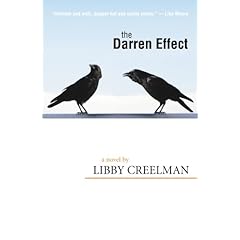
Published by Goose Lane.
I have a lot of good things and one bad thing to say about this novel. The writing is fun and energetic, and the characters are interesting and well-developed; but while the premise is original and could potentially provide fodder for much more hilarity, it’s difficult to maintain for the entire book.
From the back of the novel: “Lenore Rutland’s boyfriend of nearly eight years dumps her on Boxing Day and sneaks off to Florida.” The novel is a collection of letters written from Lenore to her departed boyfriend, who not once responds. In the beginning, this format adds a lot. I’m thinking particularly of Lenore’s list (in the first letter) of “List of Why I Think You Left Montreal.” This list is a hilarious expression of Lenore’s grief at the parting of her boyfriend. Though he never responds, Lenore learns further of her former boyfriend’s mischief through fraudulent credit card charges, investigation, and scumbags showing up at her door. The letters in which Lenore is directly addressing Fergie (John Ferguson, the runaway boyfriend) are undoubtedly the best parts of the novel.
There are many other letters, however, in which Lenore merely reports what she’s done recently, who she’s met, things that have happened, etc., and these letters defy explanation as to why she isn’t just keeping a journal. She does compare her letters to a journal at one point (excusing herself for continuing writing after he’s failed to respond for months), so the question stands: why doesn’t she just do that? This is where I think a little inconsistency in style (who says the novel has to be entirely in letter form?) would benefit the work as a whole.
The problem with making Lenore do something not as believable as it could be detracts from her character just a tad, and she’s quite the character. Throughout the novel she clips articles from the Montreal Gazette to send along with her letters to Fergie, explaining how they apply to him. For example, “Bear Tries to Eat Man’s Head” is a lesson to Fergie that men shouldn’t be mean without expecting retaliation. You can feel both her anger at his parting and her repression of that anger (usually through humour) throughout the novel.
So, my advice to literature seekers would be to get this novel, to read it, and to not get too hung up on the letter format. It only causes over-analysis.

